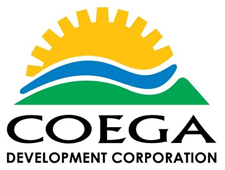November 2021
As focus turns from pandemic recovery to long-term growth strategy, a key element is clear among all that are serious about future sustainability: environmental impact. This is no longer just something that is used for marketing and brand imagery – strategies that involve environmental consciousness are proving to be both positive for the world and lucrative at the same time.
Masslift Africa, the leading distributor of Mitsubishi Forklift Trucks, is beginning to sell all electric models, switching from diesel to reduce emissions and provide improved performance.
Lufil Packaging, part of Bidvest, is beginning to manufacture card and paper products, moving away from plastic where possible to drive a recycling and reusing revolution.
Ellies Holdings, the leading provider of electrical and TV installations, is rolling out a strategy which will see solar power become part of the mainstream in homes around the country, reducing reliance on South Africa’s coal fired power stations.
Jotun Paints South Africa is driving a new ‘GreenSteps’ programme, promising to reduce emissions and use of hazardous materials while improving energy usage in its manufacturing facility.
Sealand Gear, fashion manufacturer from Cape Town, is perhaps the ultimate example – taking waste material and turning it into useful, lasting products including bags and wallets. Founder Jasper Eales is clear that the environment must be at the heart of every decision the company makes.
Talbot is helping clients evaluate water wastage, providing recycling and reusing solutions to avoid waste and take the pressure off the national systems.
All of these companies are achieving remarkable results while tying real sustainability into operations. It’s time for all to follow suit. Tell us how you are working with and for the environment – we’re online at LinkedIn.
Some of this month’s supporters:






